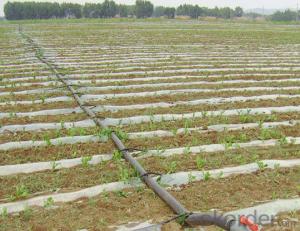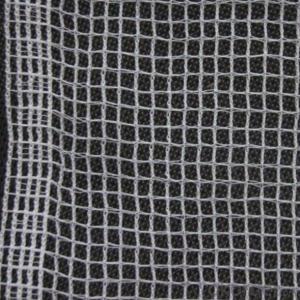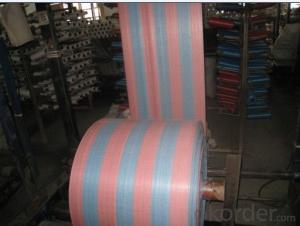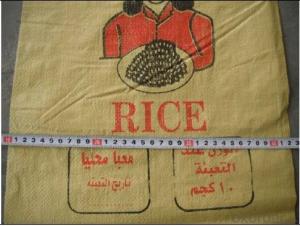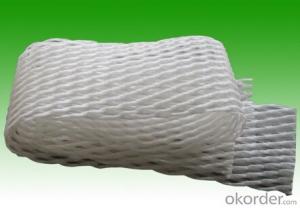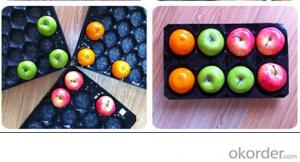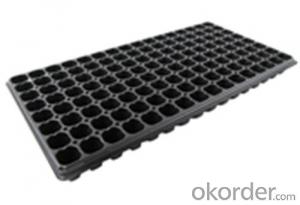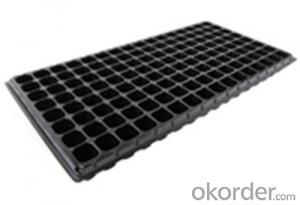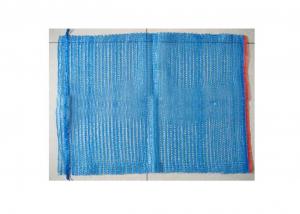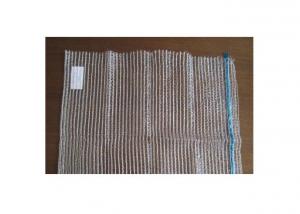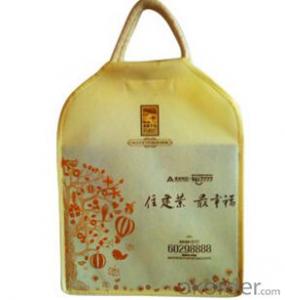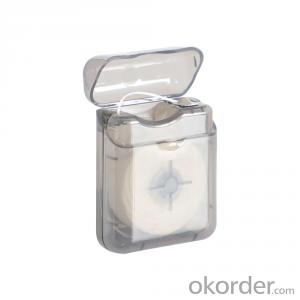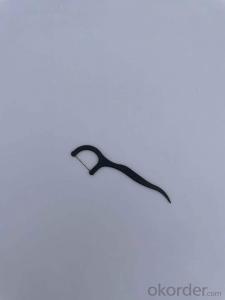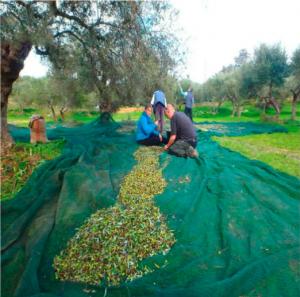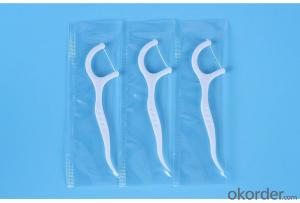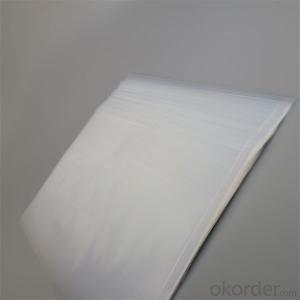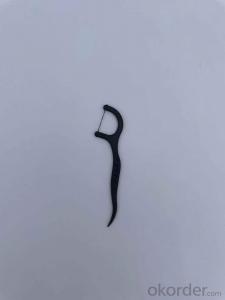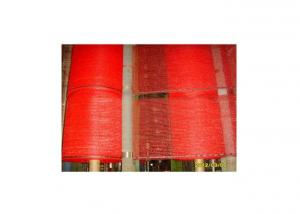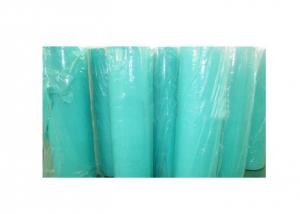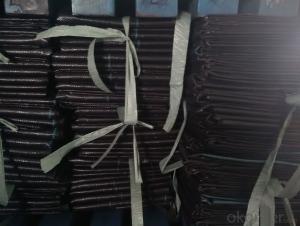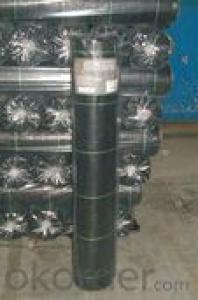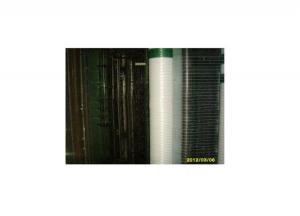Agriculture Labyrinth Type Drip Irrigation Tape 30CM
- Loading Port:
- Tianjin
- Payment Terms:
- TT OR LC
- Min Order Qty:
- 1500 m²
- Supply Capability:
- 1999999 m²/month
OKorder Service Pledge
OKorder Financial Service
You Might Also Like
Product Features of Irrigation Tape distance 30cm Good Quality :
1. The Water Margin: unilateral 1~3 meters, 2~6 meters bilateral
2. Save 50-80% labor, 40-80% water, 50% fertilizer and increase production 10-30%
3. High quality raw materials of high strength PE from the German Basf Inc and ultraviolet resistance ratio
4. Laboratory Simulated Ecological testing anti-aging life of 3 years, the actual use of the ageing time longer; low supporting the water pressure, less energy consumption
5. Supporting pipeline water supply pressure [2~3Bar] lower, low energy consumption
6. Scientific aperture distribution design, smooth aperture not easy to block and high spraying uniformity, ensure the normal use in breezeless and breeze day, ideal for drizzle days
7. Designed for flexible use,easy to coil, no shortage for length
8. Uniform irrigation, large irrigation area, increase production
9. Products passed the inspection of the national authority Chinese inspection department
10. Easy storage and transportation, simple and convenient for installation and the operation
irrigation system agriculture watering HDPE pipe
1.Breif introduction
Adopt the high quality low density polyethylene resin joined the anti-aging masterbatch by extrusion molding process of plastic pipe.
Material: Low density polyethylene resin
Performance: Non-toxic, odorless, acid corrosion, fluid resistance is small, easy to install.
The Application of Irrigation Tape distance 30cm Good Quality:
The layflat hose has a wealth of residential and commercial applications, and it is usually used for general water transfer purposes as well as for submain.Generally layflat hoses are used in the industry of agriculture,in pipe lining and rehabilitation,in removing waste water,in mine dewatering ,in the chemical industry and even for household chores
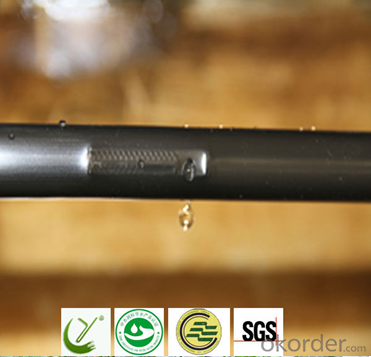
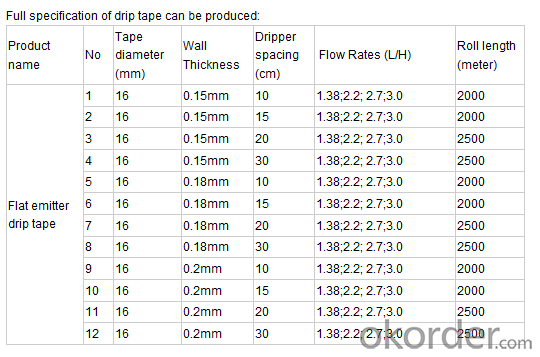
The decription of Irrigation Tape distance 30cm Good Quality:
Two layers of PVC bonded together encapsulating high tensile polyester fibers.
Thick wall dimensions and strong yarn structure help products to hold connections and resist bursting.
It assumes the conventional round appearance when pressure is being passed through it and then returns to its flat shape after use.It does not need drying and can be rolled immediately after use.
Features of Irrigation Tape distance 30cm Good Quality:
1.Great durability mainly given by the reinforcement and high-density PVC material.
2.The layflat hoses can have up to 12 inches diameter based on their applications.
3.Extra thickness are added in order to prevent bursting due to pressure in heavy industry.
4.Can be easily rolled up,stored and reused,as it has a very durable construction.
5.The hoses come with a variety of fittings and accessories ensures the water transfer process free of leaking.
6.Temperature range:-5°C~65°C(23~149F)
FAQ Irrigation Tape distance 30cm Good Quality
1.Q:Are you manufactory or trade company?
A:We are the Manufactory specialized in drip irrigation more than 20 years; Our factory have passed IS09000.
2.Q:How can I get the samples?
A:If you need some samples to test, we can make as per your request .You should pay for the transportation freight of samples and our samples cost, while the samples cost can be refundable after you place the order if the amount meets our requirement.
3.Q:How much the transportation freight of samples?
A:The freight depends on the weight and packing size and your area.
4.Q:How long can I expect to get the sample?
A:The samples will be ready for delivery within one week. The samples will be sent via express and arrive in 7-10 days.
5.Q:Can we have our Logo or company name to be printed on your products or package?
A:Sure.Your Logo can be put on your products by Hot Stamping,Printing,Embossing,UV Coating,Silk-screen Printing or Sticker
- Q:What are the best ground cover plants for small spaces?
- Some of the best ground cover plants for small spaces include creeping thyme, moss phlox, sedum, and dwarf mondo grass. These plants are low-growing, require minimal maintenance, and provide a lush, green carpet-like appearance to enhance small areas.
- Q:What are the different colors of agricultural plastic and their purposes?
- There are various colors of agricultural plastic used for different purposes. Black plastic helps to heat the soil, suppress weed growth, and retain moisture. White plastic reflects sunlight, reducing heat buildup, and is often used in hot climates. Clear plastic allows maximum light penetration, promoting plant growth, and is commonly used for greenhouse covers. Red plastic is used to stimulate early fruiting in certain crops. Blue plastic is believed to deter insects, while yellow plastic attracts them, helping with pollination. These different colors serve specific purposes in agriculture, aiding in crop production, weed control, pest management, and overall plant health.
- Q:Paper, cut more trees but recyclable. Plastic, it is also recyclable. So...which one?
- You can alway plant more tree to make paper. Big portion of plastic is petroleum based. I will take paper. Also, paper decompose much faster than plastic.
- Q:non microwaveable plastic bowls, heard someone say something jw
- I have never heard anything like that. Sounds stupid--probably not true.
- Q:Do nursery trays come with dividers to prevent cross-contamination of plant species?
- Yes, nursery trays often come with dividers to prevent cross-contamination of plant species. These dividers help maintain the integrity of each plant's identity and prevent the spread of diseases or pests between different species.
- Q:My garden hose sprayer broke and when I tried to remove it to replace it with a new one it wouldn't come off. I tried everything but nothing worked so now I'm just going to cut it off and put a new fitting on the hose. My question is should I go with a brass or plastic mender. My immediate impulse is to go with the brass one because it's a lot stronger and durable and it's only like $1/$1.50 more but then I asked myself why would they even make a plastic mender? Won't the plastic eventually deteriorate from sun and water exposure and if you dropped the hose on the ground like even once, you'd probably easily damage the plastic threads. I know it sounds like I've answered my own question but is there a good reason besides the price that I would go with a plastic mender?
- The only time plastic fittings have seemed to come in handy for me is when it is being connected with another fitting made of plastic, such as a plastic nozzle/sprayer, etc. Plastic nozzles are (unfortunately) fairly common these days, and are made for the same reason as plastic menders (cheapness, naturally). -Plastic menders/fittings are standard for in-ground lawn irrigation systems however.... Long story short? Go with Brass fittings/menders. (actually the menders are usually zinc) Also try for Gilmour products over Nelson ones. See the watering/hose ends section in link below
- Q:How do agricultural plastic products contribute to water conservation?
- Agricultural plastic products contribute to water conservation by reducing water usage in farming operations. Plastic mulch, for example, helps retain moisture in the soil by preventing evaporation, reducing the need for frequent irrigation. Drip irrigation systems, often made of plastic materials, precisely deliver water to plant roots, minimizing water wastage. Additionally, plastic irrigation pipes prevent water leakage and ensure efficient water distribution. Overall, these plastic products aid in conserving water resources and promoting sustainable farming practices.
- Q:How do you prevent ground cover from becoming a haven for pests and diseases?
- There are a few effective strategies to prevent ground cover from becoming a haven for pests and diseases. Firstly, practicing good garden hygiene is crucial. This involves regularly removing any dead or decaying plant matter, as well as weeds, which can serve as breeding grounds for pests and diseases. Secondly, maintaining proper spacing between plants allows for better air circulation and reduces the risk of disease transmission. Additionally, introducing beneficial insects and using organic pest control methods can help manage pest populations naturally. Finally, choosing disease-resistant ground cover varieties and rotating crops periodically can further minimize the risk of pests and diseases establishing themselves.
- Q:How does agricultural plastic affect crop yield and quality?
- Agricultural plastic can have both positive and negative effects on crop yield and quality. On the positive side, plastic mulch and row covers can help crops by increasing soil temperature, conserving moisture, suppressing weeds, and reducing the spread of diseases. These benefits can lead to higher yields and improved crop quality. However, improper use or disposal of agricultural plastic can have negative consequences. Plastic debris left in the field can hinder crop growth, impede water and nutrient uptake, and create a breeding ground for pests and diseases. Additionally, plastic waste can pollute the environment and harm wildlife. Therefore, proper management and responsible disposal of agricultural plastic are crucial to maximize its benefits while minimizing any potential negative impacts.
- Q:How do they make plastic?How much oil does it require?Is there a new way to make plastic with out using any oil? Can they use some thing else instead?
- Plastic is common name for a large number synthetic, organic solid materials. Plastics are typically long chains of simple molecules. The chains are made by a process called polymerization, usually heating under the presence of a katalyzer. The starting molecules are most often produced from oil. Scientists are seeking cheaper and better alternatives to oil-based plastics, like fructose.
1. Manufacturer Overview |
|
|---|---|
| Location | |
| Year Established | |
| Annual Output Value | |
| Main Markets | |
| Company Certifications | |
2. Manufacturer Certificates |
|
|---|---|
| a) Certification Name | |
| Range | |
| Reference | |
| Validity Period | |
3. Manufacturer Capability |
|
|---|---|
| a)Trade Capacity | |
| Nearest Port | |
| Export Percentage | |
| No.of Employees in Trade Department | |
| Language Spoken: | |
| b)Factory Information | |
| Factory Size: | |
| No. of Production Lines | |
| Contract Manufacturing | |
| Product Price Range | |
Send your message to us
Agriculture Labyrinth Type Drip Irrigation Tape 30CM
- Loading Port:
- Tianjin
- Payment Terms:
- TT OR LC
- Min Order Qty:
- 1500 m²
- Supply Capability:
- 1999999 m²/month
OKorder Service Pledge
OKorder Financial Service
Similar products
New products
Hot products
Related keywords
